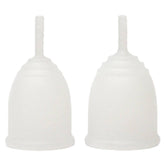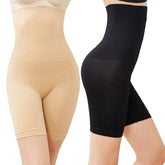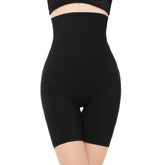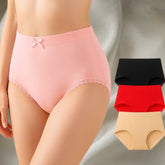How Can We Improve Our Health and Fitness?
How Can We Improve Our Health and Fitness?
The Health and Fitness in these days ever-changing world, health and fitness has never been more important. After inactive routines to managed foods and rising stress levels, it can be difficult to maintain our overall well-being.
But by embracing a holistic health and fitness approach, we can improve the quality of our lives and unlock our true potential.
In this health and fitness blog, we’ll look at different aspects of health, from physical activity to nutrition, mental health and lifestyle choices to help you reach your goals and succeed for your health and fitness.
Physical Activity: The Foundation of Fitness
Physical activity is the foundation of any healthy lifestyle. Not only does it help us keep our weight in check, but it also improves our cardiovascular health, mood, and overall wellbeing. In order to get the most out of your workout routine, it’s important to combine aerobic exercises with strength training and flexibility and balance exercises.
Walking, running, or cycling increases your heart rate and strengthens your cardiovascular system. Make sure you’re doing at least 150 MINUTES (or 75 MINUTES) of aerobic activity per week. Strengthen your muscle mass, increase your metabolism, and improve bone density with strength training.
Try to include resistance exercises such as body weight or free weights or resistance bands in your routine at least twice a week.
Try to incorporate flexibility and balance exercises such as yoga and into your routine. Doing these can improve your posture, coordination and overall flexibility. They also reduce your risk of injury and allow you to relax more.
Why is exercise so important?
Whether you used to be much more active or you’ve never been a fan of exercise, now’s the time to jump on the exercise and fitness bandwagon. Getting fit and staying fit is as important for older adults as for younger ones.
Why exercise is important for older adults Exercising increases your heart rate and challenges your muscles, which benefits virtually every part of your body. Exercise improves your overall health and mental well-being in countless ways.
Exercise helps keep your blood pressure in check, reduces the build-up of plaque in your arteries and inflammation, lowers your blood sugar, strengthens your bones, and reduces your risk of depression.
Exercise also improves your sex life, improves your quality of sleep, reduces your risk of certain cancers, and increases your life expectancy.
What are the best types of exercise?
There are many different types of exercise, but experts categorize them into four broad categories based on what motivates your body to move and how the exercise benefits you.
The first type of exercise, aerobic, is characterized by an increase in heart rate. While most aerobic exercises involve movement of the entire body, the heart and lungs are the primary focus of aerobic exercise (cardio is often referred to as “aerobic” due to its challenge and benefits to the cardiovascular system).
Walking, swimming, dance and cycling, when done at high enough intensity, will increase your breathing rate and make your heart work harder.
These aerobic exercises burn fat and improve mood, inflammation and blood sugar levels. The second type of exercise, strength training, is sometimes referred to as resistance training, and should be done at least twice or three times per week.
Doing squats, lunges and push-ups, as well as using resistance machines or weights or bands, helps maintain and even strength and muscle mass.
Belly Fat: Why It's So Dangerous & How to Lose It
Maybe you’ve decided to slim down by losing some of the belly fat you’ve been carrying around because you don’t think it looks good. Visceral fat, on the other hand, isn’t just a cosmetic issue. It’s a health issue.
“Visceral fat is not cosmetic,” says Houston Methodist bariatric surgeon Garth Davis. “It’s a very serious health condition that can lead to chronic metabolic disease.” Unfortunately, it’s impossible to target visceral fat when you’re starting a slimming program.
However, by losing weight, you’ll be able to reduce the size of your waist and, more importantly, reduce the amount of visceral fat in your body.
The dangers of visceral fat
Women between 45 and 79 years old found that those with the largest waistlines were more than twice as likely to develop heart disease, even after controlling for risk factors like blood pressure, cholesterol levels, smoking, and body mass index (BMI). Every additional 2 inches in a woman's waist increased her risk of heart disease by 10%.
Visceral fat has also been linked to a variety of other conditions.
- Asthma: A study of California teachers found that women with high visceral fat had a 37% higher risk of developing asthma than those with lower visceral fat, a finding researchers attribute to visceral fat’s inflammatory activity throughout the body (including the airways).
- Visceral Fat and Cancer: Another risk factor for cancer is visceral fat. In a Korean study, women who developed visceral fat after the menopause were almost twice as likely as those who did not. In a Dutch study, women with waistlines over 35 inches who had lost 12 pounds also had changes in breast cancer biomarkers, such as estrogen, leptin, and inflammatory proteins, which reduce the risk of breast cancer.
- Dementia: According to a California study, people in their 40s with the most visceral fat were 30 to 40 years more likely to have dementia than those with the least visceral fat at that age.
Other health issues associated with visceral fat include: Diabetes Stroke Lung disease Heartburn Sleep problems Migraine headaches
How you can combat belly fat?
First, it’s important to note that everyone has some genetic predisposition to storing fat differently. “Hormones play a big role,” says Dr. Davis. “Men tend to carry their weight around their midsection, and women tend to carry it around the hips and thighs.”
There are currently no weight loss pills specifically designed to target belly fat. Bariatric surgery is only available to those with a minimum body mass index (BMI) of 40 or higher. The good news, though, is visceral fat doesn’t have to be difficult to lose. “It just takes work”.
Here's what you can do:
- Diet: There’s no one-size-fits-all approach to belly fat reduction, but Dr. Davis recommends eating a diet that’s mostly plant-based, high in fruits, vegetables, and legumes, and low in sugar, meats, dairy, eggs, and processed foods.
- Activity: It’s important to note that you can’t see reduce, so you won’t get rid of belly fat with a few sit-ups. However, when you lose weight, belly fat tends to be the first thing to go first. Dr. Davis encourages patients to “be active but don’t kill yourself. You don’t need to run marathons or be a bodybuilder.” Exercising for 30 minutes to one hour five days per week, with an additional 8,000-10,000 steps a day, will do the trick.
- Sleep: Getting a good night’s sleep helps. According to one study, those who slept between 6 and 7 hours a night lost less visceral fat than those who slept between 5 and 5.5 hours or 8 and more hours a night.
- Stress: Try to reduce stress levels. Spend time with loved ones, go for walks in nature, practice meditation, and get some exercise.
Nutrition: Fuel Your Body for Success
A well-balanced diet is essential for fueling the body, encouraging physical activity and keeping you healthy. Focus on eating a variety of high-nutrient foods from all the food groups to make sure you get the vitamins, minerals and macro-nutrients you need.
Eating a variety of colorful fruits and vegetables is a great way to get plenty of vitamins, minerals and antioxidants. Choose fruits and vegetables that are rich in fiber, whole grains and lean proteins. Choose healthy fats and dairy alternatives to make sure you’re getting the nutrients you need to stay healthy.
Eliminate processed foods, sugar-laden snacks and beverages that are high in calories and can cause weight gain and other health problems. Instead, focus on whole, unsaturated foods whenever possible, and cook meals at home more often.
Drink plenty of water. Drinking plenty of water is essential for digesting food, absorbing nutrients, regulating temperature and keeping your body hydrated. Make sure you drink at least 8 glasses of water a day. Your water intake can vary depending on your activity level, your climate and individual needs.
Mind-Body Connection: Nurturing Mental Well-Being
Physical well-being is important, but mental well-being is just as important. Chronic stress and anxiety, as well as negative emotions, can have a negative impact on our overall health and well-being.
Implementing relaxation, mindfulness and emotional resilience practices can help you manage stress and improve your mental well-being. For example, mindfulness meditation, deep breathing and progressive muscle relaxation can help reduce stress, promote relaxation and improve your mental clarity.
Try to dedicate a few minutes to these practices each day. Indulge in activities that make you happy, whether that’s spending quality time with your loved ones, discovering new hobbies or spending time in nature.
Set boundaries and prioritize self-care and work-life balance to avoid burnout. Ask for help when you need it most, whether it’s a friend, family member or mental health professional. Remember that it’s okay to ask for support when you need it.
Lifestyle Choices: Creating Healthy Habits for Life
To sum up, you need a holistic approach to your health and fitness. This includes physical activity, diet, mental health, and lifestyle changes.
By focusing on these and making long-term, sustainable changes to your lifestyle, you can improve your quality-of-life, reach your highest potential, and be successful in all aspects of your life.
Keep in mind that change takes time, effort, and hard work. Be kind to yourself. Celebrate each step on your wellness journey.









